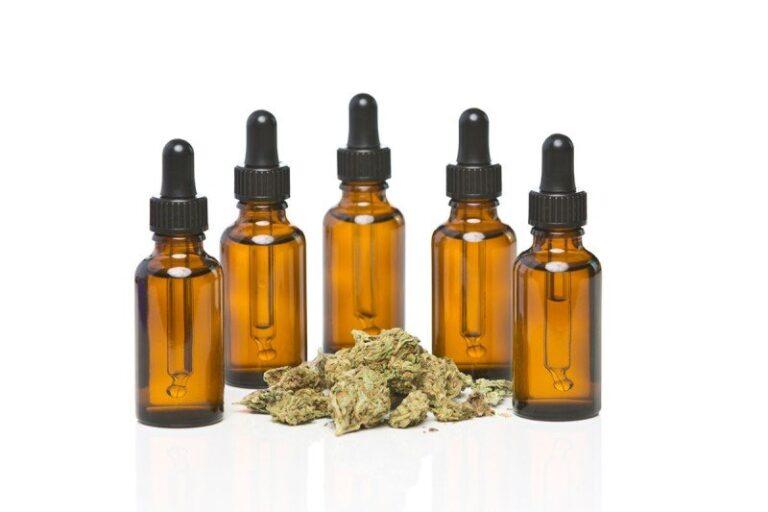Honey is one of those pantry items that you can always benefit from just having around at any given moment. Just throw it on anything—fruit, toast, oatmeal, cheese boards, homemade salad dressings, marinades, hot tea, coffees, and cocktails. The opportunities are endless! Honey is not only versatile, but also it is often used as a more natural alternative to processed (or refined) sugar, which is why it is often seen as a healthier choice. But is honey actually good for you, or is it just another falsely touted health food?
Because it is made from hardworking bees and undergoes minimal processing, honey is considered a natural sweetener, and therefore has plenty of its vitamins, minerals, and antioxidants intact. Honey is often compared to refined sugar, which has roots in natural sources like sugar cane or sugar beets. However, it goes through extensive processing that ultimately leaves it void of nutritional value. But is honey automatically good for you just because it’s natural?
To learn more, we talked to expert dietitians about the benefits of honey, as well as some potential side effects. Read on, and for more healthy eating tips, make sure to check out the 20 Effects of Eating Peanut Butter.
Honey’s nutrition information
Nutrients per 1 tablespoon of honey (21 grams):
6 health benefits of honey
1. Honey has antimicrobial properties
Have you ever been told to put a spoonful or two of honey in a cup of tea when you’re feeling sick? Aside from adding a bit of sweetness to your beverage, there seems to be another reason behind this suggestion.
According to Mary Sabat MS, RDN, LD, “Honey has been found to have antimicrobial properties, which means it can help fight against bacteria, fungi, and viruses.” She adds that, “According to a study published in the British Journal of Surgery, honey has even been found to be effective in treating infected wounds.”
OK, so you may not want to rely on this sweetener if you’re dealing with an open flesh wound. But these results are promising for those who like to drink honey and tea when they have the flu.
2. It’s rich in antioxidants
Another benefit of incorporating honey into your diet is that it contains powerful antioxidants known to help your body in major ways.
“Honey is a rich source of antioxidants, which can help protect the body from damage caused by free radicals—which are unstable molecules that can cause cellular damage and contribute to chronic diseases such as cancer, heart disease, and Alzheimer’s disease,” says Sabat. According to the journal Oxidative Medicine and Cellular Longevity, these antioxidant properties of honey have also been linked to the reduction of chronic inflammation.
Even other forms of natural sweeteners, such as pure maple syrup, agave nectar, and date syrup, can offer your body similar antioxidants that you won’t get from eating processed sugar.
3. It can soothe a sore throat
Having a sore throat is one of the most uncomfortable parts of being sick. But thankfully, if you feel like you’re swallowing knives, some honey may be able to provide you with a bit of relief.
“Honey has been found to be an effective remedy for a sore throat,” says Sabat. “According to a study published in the Archives of Pediatrics and Adolescent Medicine, honey was found to be more effective at relieving a cough and sore throat symptoms in children than cough suppressants.”
4. Honey can aid in digestion
Even though you’re probably using honey as a sweetener or for some relief when you’re sick, you may not realize that it can also improve the health of your digestion and gut over time.
According to Sabat, “Honey has been found to help aid digestion by promoting the growth of beneficial bacteria in your gut, and a study published in Frontiers in Nutrition found that honey had prebiotic effects on gut health.”
5. It may help in lowering blood pressure
Multiple research studies provide evidence for honey having potential effects on your cardiovascular health. According to the International Journal of Environmental Research and Public Health, honey was found to help improve heartbeat, regulate the level of fat in the blood, and help prevent the death of healthy cells in the body.
Another study, published in Clinical and Experimental Hypertension discovered that eating a moderate amount of honey was associated with lower blood pressure in women over 40.
6. It won’t spike blood sugar as much as other types of sugar
Using a natural sweetener to replace regular sugar can be a healthier choice—especially if you’re watching your blood sugar levels.
“From strictly a caloric and sugar content point of view, sugar and honey are very similar,” says Jesse Feder, RDN, CPT with My Crohns and Colitis Team. “But interestingly enough, honey has also been shown to help treat diabetes, along with diabetic medications. Specifically, studies have found that due to its higher fructose content, consumption does not spike your blood sugar as much, and even promotes healthy insulin activity and blood sugar levels.
3 possible negative effects of eating honey
1. It’s still high in calories
In some ways, the benefits or side effects of honey depend on your personal health goals. As we mentioned above, this natural sweetener will not have as drastic of an effect on raising your blood sugar as some other forms of sugar will.
However, “Honey is still relatively high in calories and should be consumed in moderation,” says Sabat. “For instance, one tablespoon contains approximately 64 calories.”
Also, although it’s a natural sweetener—it is still a sweetener: Honey has 17 grams of sugar per tablespoon. If you’re looking for something with fewer calories than honey or other types of sugar, you may want to try a zero-calorie sweetener instead.
2. You could potentially have an allergic reaction
There are really only a handful of potentially negative side effects with honey, but the Mayo Clinic warns of possible allergic reactions. Sabat agrees, adding that, “Some people may be allergic to it and experience symptoms such as hives, itching, or swelling. In severe cases, an allergic reaction can cause anaphylaxis, a life-threatening allergic reaction that requires immediate medical attention.
3. There’s still a risk for infant botulism
The last thing to know about the potential risks of eating honey is that it can be dangerous for children under the age of one.
“Honey may contain spores of the bacteria that cause botulism,” says Sabat, “and these spores can grow and produce toxins in the infant’s intestines, which can cause serious illness or even death.”
Sign up for our newsletter!
This content was originally published here.




















